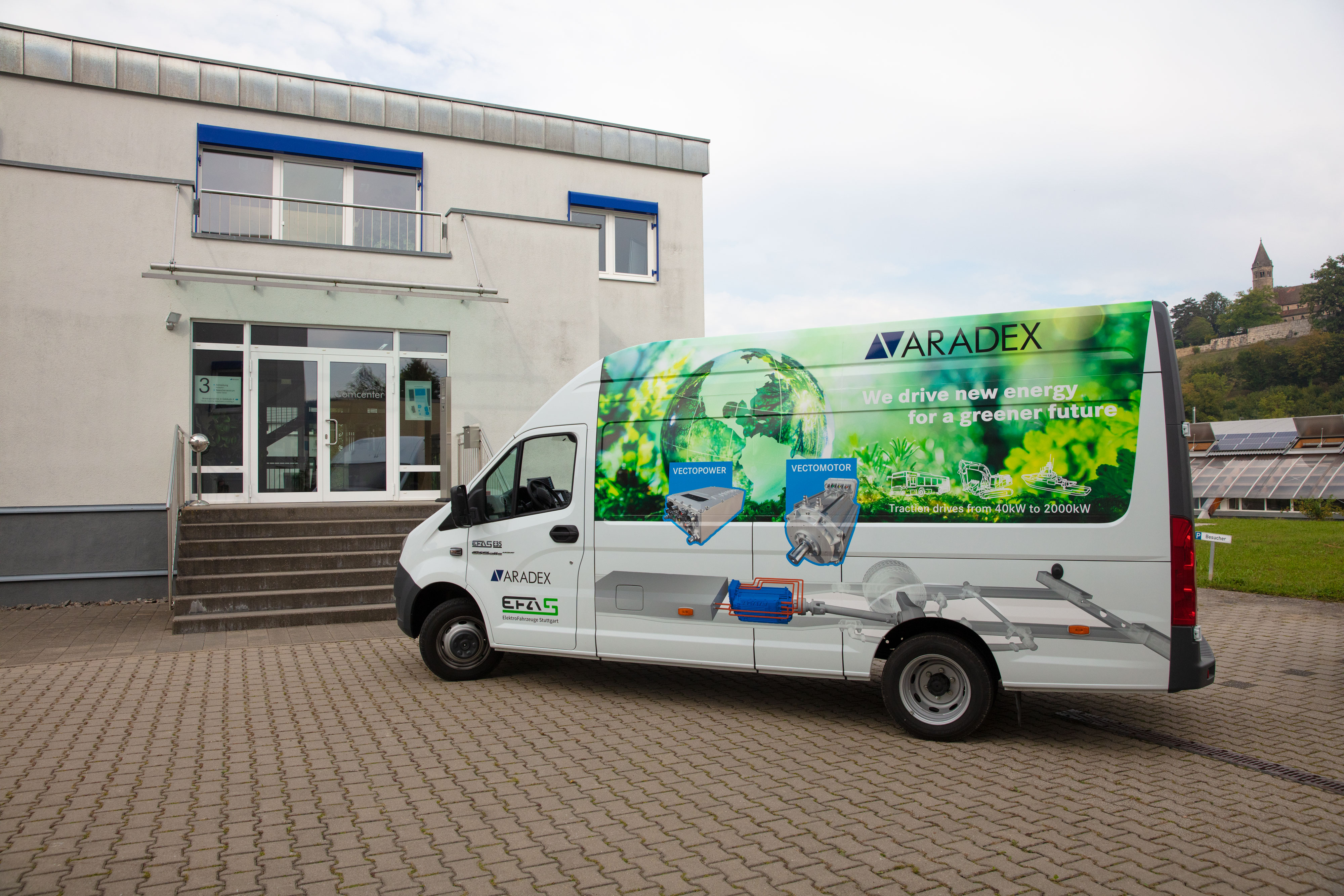
Starting situation
The ARADEX AG located in the city of Lorch; Baden-Wuerttemberg; Germany, develops electrical powertrain solutions for commercial and utility vehicles, construction machinery as well as marine applications. Besides these innovative hardware solutions ARADEX offers its customers a variety of software services. These services shall be augmented with AI technology. Data that is available in the powertrain shall be analyzed e.g., to improve the available range of the electric vehicle or to identify malicious driving behavior in regards to battery life.
Problem formulation
In order to improve the range estimation as well as the longevity of the battery the individual driving behavior shall be recorded anonymously and then be utilized to detect potential for improvements. The powertrain provided by ARADEX offers a manifold of relevant data sources, e.g. the converter or the electrical motor. Driver profiles or driving styles shall be extracted from this data with the help of AI technology. Within the scope of the CC-KING QuickCheck multiple approaches were conceptualized accompanied by rough estimations of the necessary amounts of data to train these approaches for marketability.
Solution approach
The problem at hand is a classification task where implicit knowledge about the driving behavior has to be identified within the data in order to train a classifier. Therefore, different identifiers for the driving behavior have been developed. While vehicle velocities and braking maneuvers do not identify a driver unambiguously as they are also influenced by traffic and road conditions, the actuation of the gas pedal can be ascribed directly to the driver. Thereby, a natural solution approach is to classify the intensity and duration of the gas pedal actuations. Additionally, more complex features have been designed that e.g. quantify untapped recuperation potential by examining the driver’s usage of the mechanical brake. Based on the approaches implemented in the CC-KING QuickCheck advanced AI concepts that utilize Long Short-Term Memory neural networks have been conceptualized. These promise a precise classification of the driver behavior when trained on larger amounts of data.
QuickCheck results
The QuickCheck has shown that the classification of the driver behavior for one-pedal-driving is feasible. Manually labeled driving behavior, e.g. aggressive driving or daily commuter traffic, could be distinguished reliably. It has also been shown that with more data additional features and thresholds can be derived automatically from the data in order to make the classification algorithms even more robust. All in all, the results of the QuickCheck are promising and will be pursued further. Additionally, questions and best practices about data management tasks like data recording, data enrichment, data storage and data labeling could be answered to ensure a sustainable and efficient data collection and usage at ARADEX.
 Competence Center AI Engineering
Competence Center AI Engineering